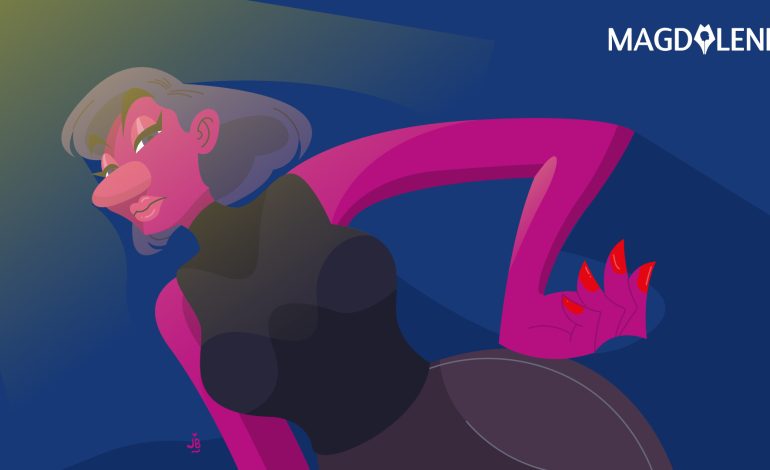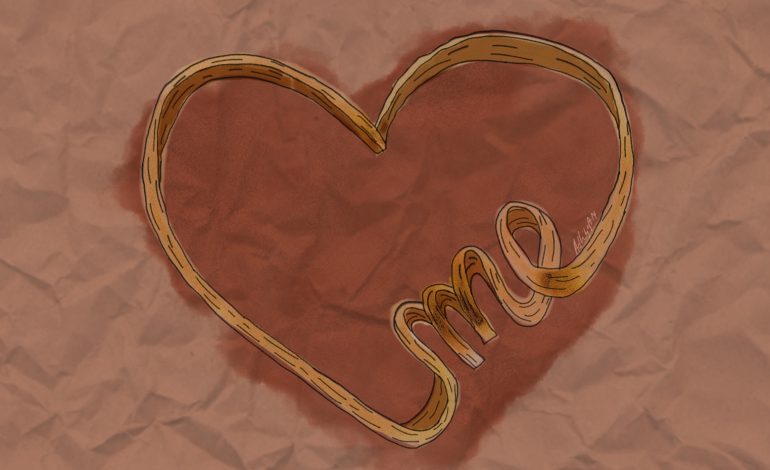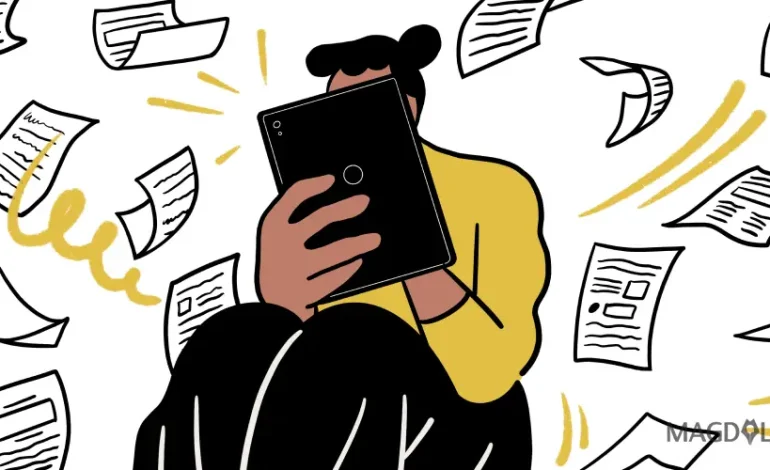“You Need to Smile More”: The Peril of Having Resting Bitch Face

Actress Anna Kendrick once raised her frustration of having “resting bitch face”, saying that she needed an Instagram filter to fix her facial expression everytime her picture was taken.
“When somebody takes a photo and I’m in the background of it, I think, like ‘oh my God what’s wrong with me?!” she tweeted.
I feel her so much, for this RBF has made me misunderstood countless of times, limited my social circle, and nearly got me kicked out of an after school program.
Most of my friends said that their first impression of me was of a judgmental bitch with a holier-than-thou attitude. They were surprised to find out that I am Sundanese who, by some stereotypical and sexist standards, should be all smiley and easy going. For years, being misinterpreted and judged based on what I think is my “neutral” expression, really messed up with my self esteem.
Back in high school, the situation was even worse because I was outspoken and opinionated in class. I was already (still am) an introvert who could not get along with people easily, so it was harder for me to make friends. I ended up only having one close friend.
Also read: I Will Never Be Cool and That’s OK
When I joined the flag-raising program at school, I was placed at the front row. I worked hard and was trying my best for the competition but then the coach always moved me to another spot because of – guess what – my RBF.
“Your face is too judes (stern). I don’t think the jury would appreciate seeing an unfriendly face in the front row,” he finally said when I asked him whether I had made a mistake.
But his decision to move me around turned out to ruin the formation we had been practicing the whole month. After realizing his plan did not work, he gave up and put me back on the initial position. But not before he told me to smile more often. I then spent extra time and energy practicing a happy face. We lost at the competition, but rest assured it was not because of the way I look.
The problem with my bitchy face continued during college. One of the unforgettable moments was during the community service program (Kuliah Kerja Nyata/KKN) where I had to live with 20 other students from different faculties in a village for a month. It took others a week to finally strike up a conversation with me, making me feel like an outcast.
Later on, when we had a farewell party, the group leader asked us about our first impression of one another. And in unison, they had thought I was unapproachable and unfriendly, before they found out I was the contrary. Funny even (okay, I made up this part).
But it was in college that I befriended a group of like-minded people: fellow RBFs who see people beyond their looks and who are not afraid of expressing themselves to the point of being called slutty.
Also read: If I Were a Boy, How Easier My Life Would Be. Here’s Why
Gender and Cultural Bias Surrounding Resting Bitch Face
The experience of being judged as bitchy has affected my confidence, especially when it comes to social interaction. I tend to be more reserved in a new environment and see how it goes first. In terms of work, I listed jobs that require a lot of interaction with other human beings, so that I could avoid them at all costs.
The constant judgment left me wondering what was so wrong with my face. Was it because my mouth curled slightly downward? Or my furrowed eyebrows when I think too hard (which was often)? Was it my sharp gaze? I never found the answers.
A study conducted by Jason Rogers and Abbe Macbeth in 2015 tried to come up with a conclusion. Using FaceReader facial recognition software to identify expressions of celebrities who have RBF, they discovered that celebrities who had bored or annoyed looks were showing underlying levels of emotions but the machine still considered it as neutral expressions. The interesting part is, because the FaceReader is a machine, it was able to remove the gender bias surrounding RBF. It turned out that RBF isn’t necessarily something that occurs more in women. But why does RBF tend to be associated with women?
Cultural differences and gender bias may play a role in people’s perception of RBF. Women are constantly being told by society that they have to be kind and friendly to everyone. Since I was little, my mother always told me I have to put on a smile when meeting other people. On the street, the common catcall is for women to smile more, and to not play hard to get. Even journalists dared to force tennis legend Serena Williams, who was exhausted after winning a championship, to smile in a press conference.
The New York Times wrote that for many years, studies have determined that women do tend to smile more than men, but not necessarily because they are happier. Nancy Henly, a cognitive psychologist, had theorized that women’s frequent smiling stems from their lower social status (badge of appeasement). That’s why women are more likely to work in the service sector or front liners, where smiling is considered as an asset.
Meanwhile, men who have RBF would be considered cool, educated, and have leadership traits, while women would probably be labeled as, well, bitches. On the other hand, it is hard for women to be taken seriously if you are perpetually smiling. We just can never win, can we?
Now, I have gotten used to people telling me that I look bitchy, stern, or unfriendly. I even took it as a compliment when they later said I look intimidating. Although sometimes it still hurts a little bit, like when a friend recently commented on Instagram that I looked like an angry landlady chasing down her tenants for late payment. But I got over it after a while.
I have begun to love my RBF because thanks to it, rarely anybody wants to take advantage of me or mess with me. I love my RBF because no one can force me to smile, including society. Now, every time people point out that I have an RBF, I no longer take it personally and simply say, “that’s just my face”.






















